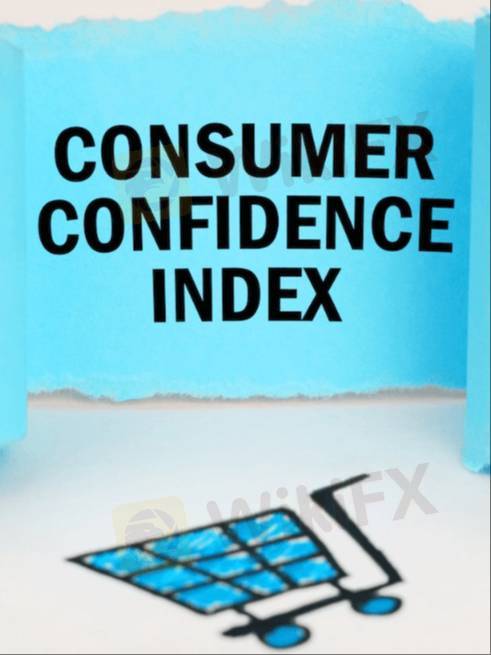
2024-12-20 15:55
业内The Impact of Consumer Confidence on Exchange Rate
The Consumer Confidence Index (CCI) is an important indicator reflecting consumer confidence and expectations about the economic situation, with multiple impacts on exchange rates:
1. Economic Growth Expectations
High consumer confidence typically indicates strong economic growth, leading to an appreciation of the domestic currency. Low confidence suggests economic weakness, potentially leading to a depreciation of the currency.
2. Monetary Policy Expectations
High CCI may trigger expectations of interest rate hikes, attracting capital inflows and boosting the exchange rate. Low CCI could lead to expectations of rate cuts or easing policies, depressing the exchange rate.
3. Impact on Imports and Exports
High consumer confidence may increase demand for imports, raising the demand for foreign exchange and potentially weakening the domestic currency. Low confidence may reduce import demand, supporting the domestic currency.
4. Capital Market Impact
High confidence is typically associated with stock market gains, attracting foreign capital and strengthening the exchange rate. Low confidence may result in capital outflows, weakening the exchange rate.
5. Regional Differences
In developed economies, changes in the CCI have a more direct impact on exchange rates, while emerging markets are more affected by external capital flows and commodity price fluctuations.
6. Investor Sentiment
High CCI boosts investor confidence, increasing demand for the domestic currency and strengthening the exchange rate. Low CCI may raise concerns about economic slowdown, weakening the currency.
Example Analysis
United States: A high CCI strengthens the USD, particularly during economic recovery periods, such as the USD's strong performance after the pandemic in 2021.
Eurozone: A high CCI boosts the EUR exchange rate.
Japan: Low CCI may lead to more easing policies, weakening the JPY.
In summary, consumer confidence affects exchange rates through various channels such as economic growth expectations, monetary policy, and capital flows. A comprehensive analysis requires considering other economic data and market conditions.
赞 0
Kevin Cao
โบรกเกอร์
热门讨论
业内
哎,现在明白不赌就是赢啊
行情分析
美元/加元技术面
业内
[活動]論交易,贏取200元話費補貼
技术指标
外汇技术分析之波浪理论
技术指标
EZ.Fury Kite是基于趋势指标MA进行判断
技术指标
指标派是什么?
集市分类

平台

展会

IB

招聘

EA

业内

行情

指标
The Impact of Consumer Confidence on Exchange Rate
 香港 | 2024-12-20 15:55
香港 | 2024-12-20 15:55The Consumer Confidence Index (CCI) is an important indicator reflecting consumer confidence and expectations about the economic situation, with multiple impacts on exchange rates:
1. Economic Growth Expectations
High consumer confidence typically indicates strong economic growth, leading to an appreciation of the domestic currency. Low confidence suggests economic weakness, potentially leading to a depreciation of the currency.
2. Monetary Policy Expectations
High CCI may trigger expectations of interest rate hikes, attracting capital inflows and boosting the exchange rate. Low CCI could lead to expectations of rate cuts or easing policies, depressing the exchange rate.
3. Impact on Imports and Exports
High consumer confidence may increase demand for imports, raising the demand for foreign exchange and potentially weakening the domestic currency. Low confidence may reduce import demand, supporting the domestic currency.
4. Capital Market Impact
High confidence is typically associated with stock market gains, attracting foreign capital and strengthening the exchange rate. Low confidence may result in capital outflows, weakening the exchange rate.
5. Regional Differences
In developed economies, changes in the CCI have a more direct impact on exchange rates, while emerging markets are more affected by external capital flows and commodity price fluctuations.
6. Investor Sentiment
High CCI boosts investor confidence, increasing demand for the domestic currency and strengthening the exchange rate. Low CCI may raise concerns about economic slowdown, weakening the currency.
Example Analysis
United States: A high CCI strengthens the USD, particularly during economic recovery periods, such as the USD's strong performance after the pandemic in 2021.
Eurozone: A high CCI boosts the EUR exchange rate.
Japan: Low CCI may lead to more easing policies, weakening the JPY.
In summary, consumer confidence affects exchange rates through various channels such as economic growth expectations, monetary policy, and capital flows. A comprehensive analysis requires considering other economic data and market conditions.
赞 0
我也要评论
提问
0条评论

还没人评论,赶紧抢占沙发

提问
还没人评论,赶紧抢占沙发